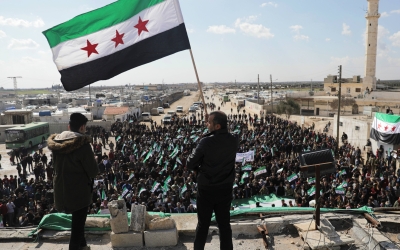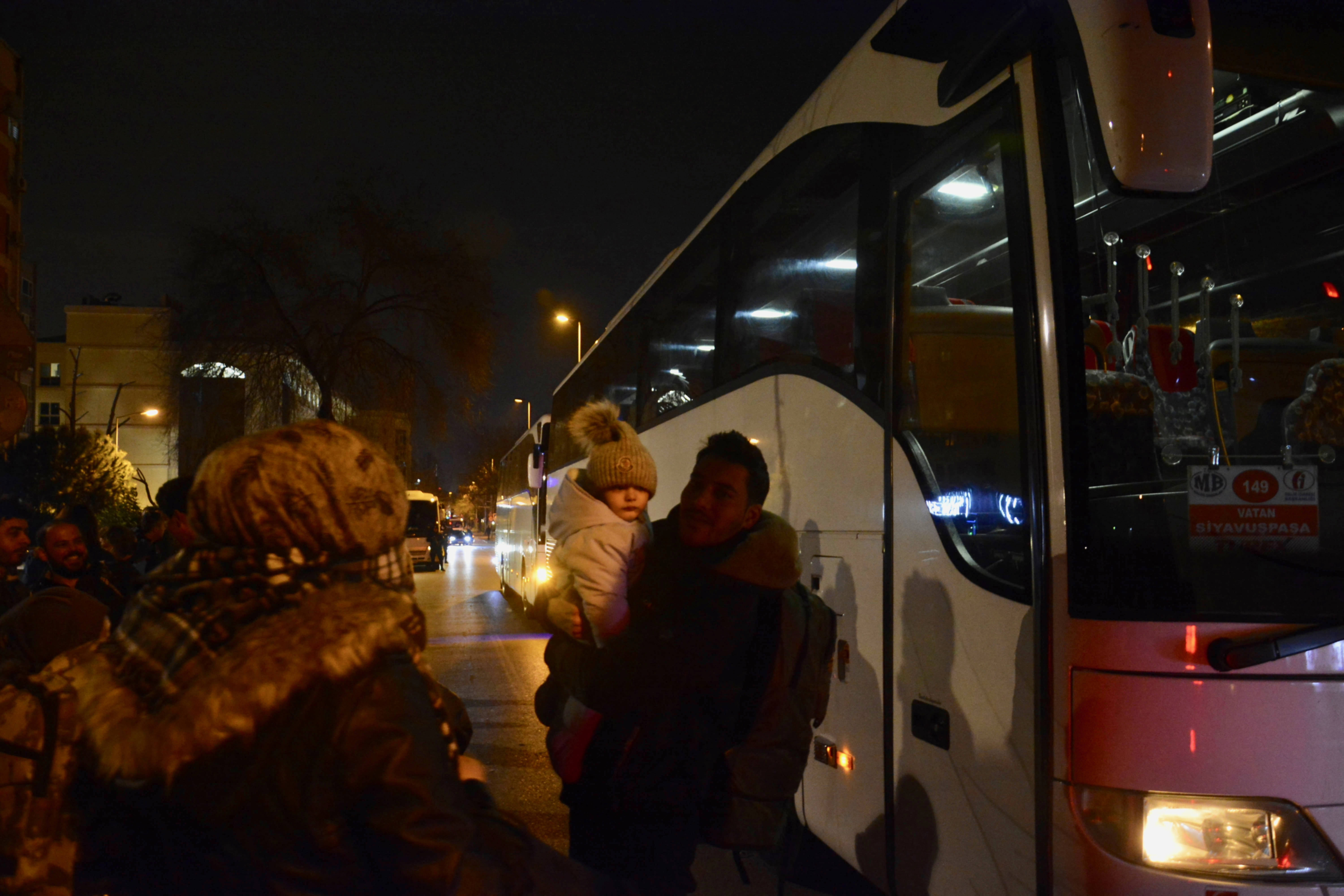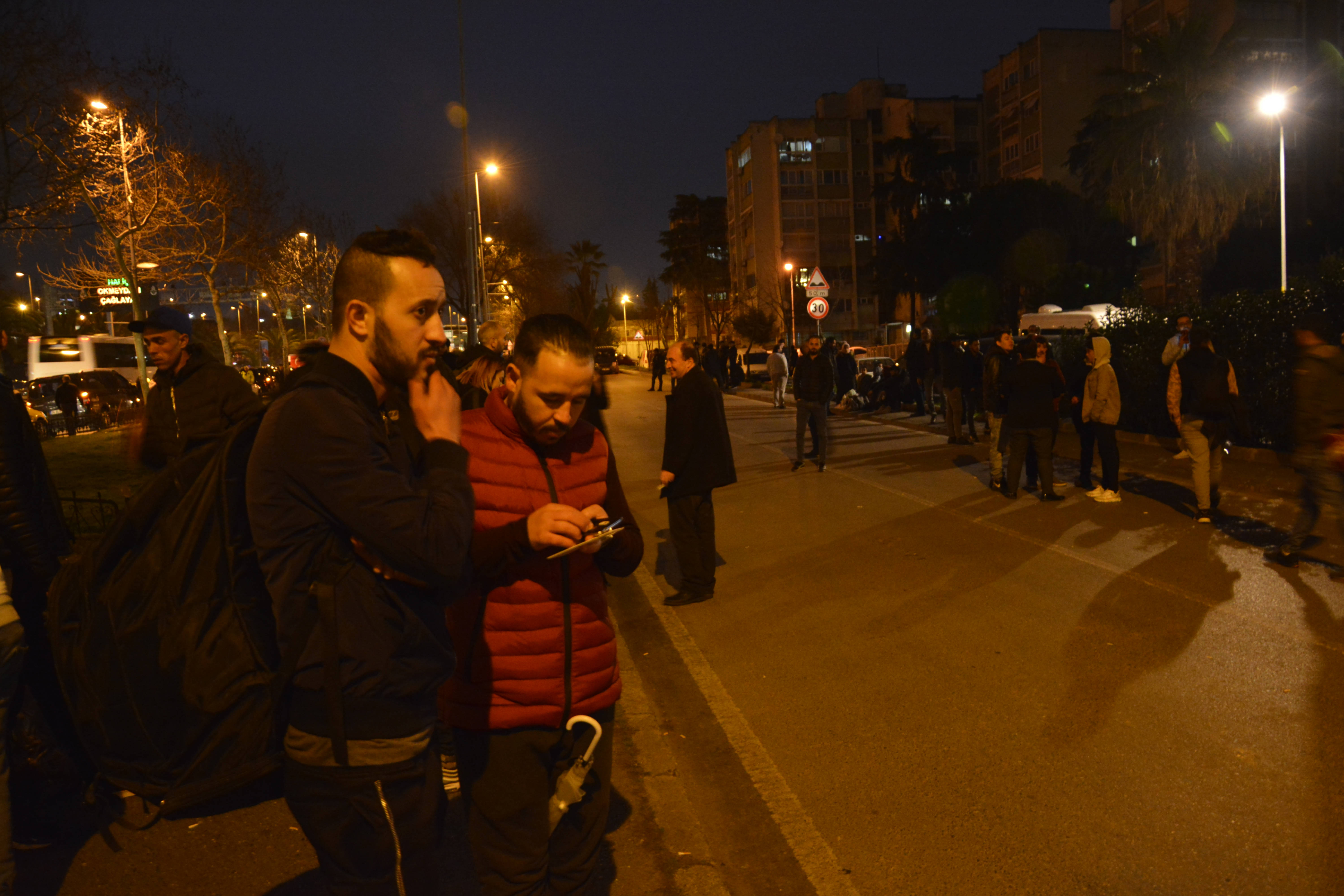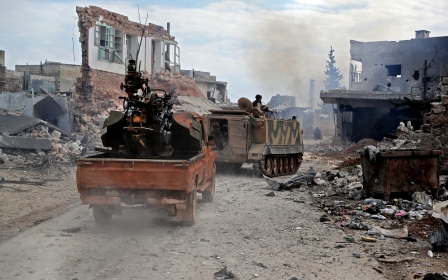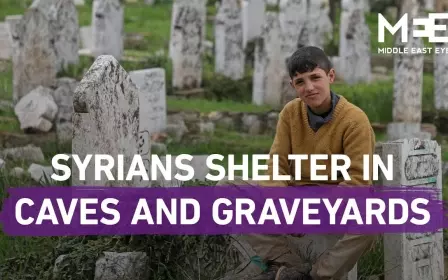Buses in Istanbul transport refugees from Turkey to border with Greece for free
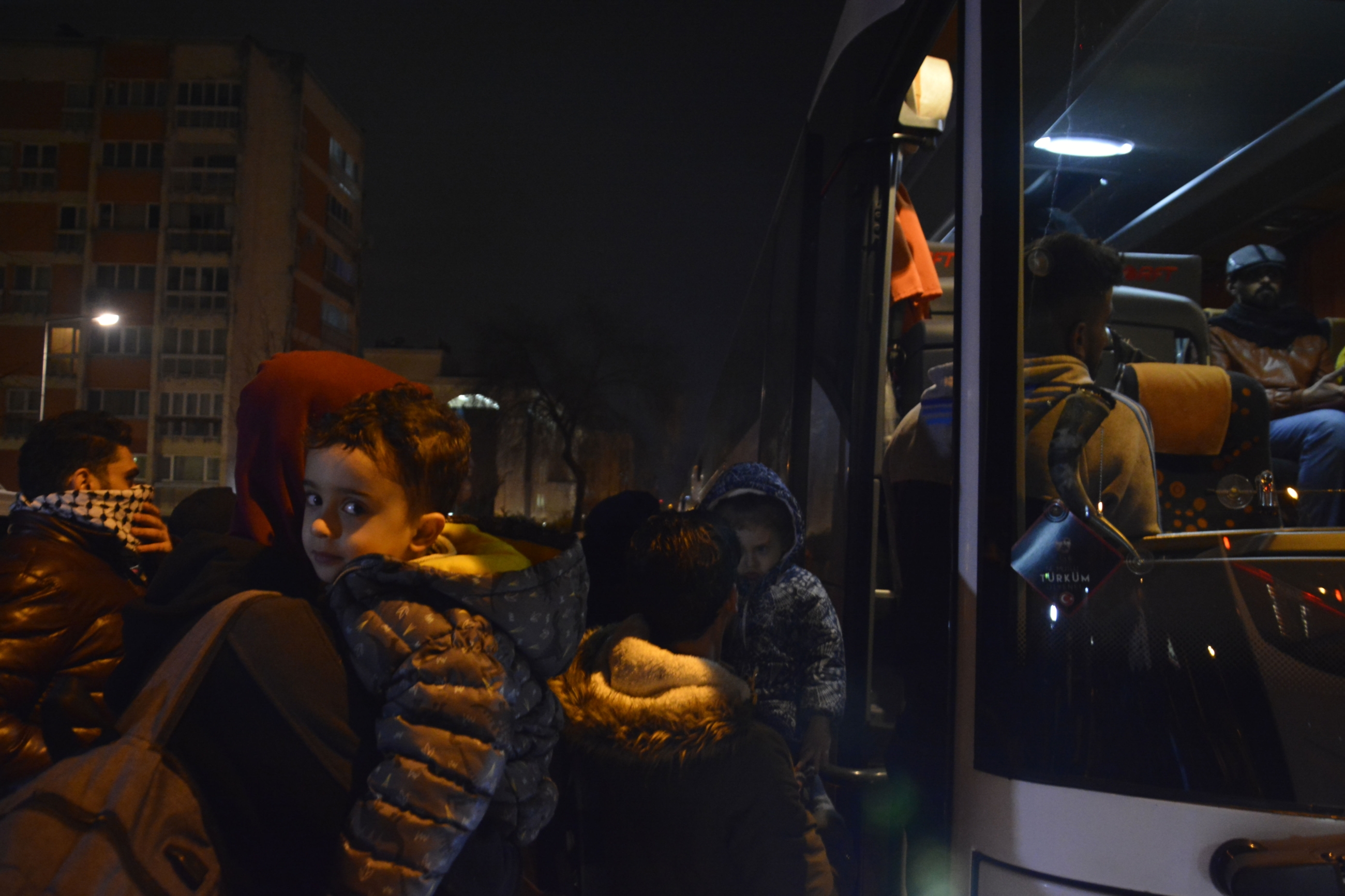
On a cold night in Istanbul, Hani al-Hassan sat on the street with his wife and child waiting for the buses that will take them for free to the Turkish-Greek border, from where the family plans to make its way to central Europe.
Hassan, a Syrian refugee, told Middle East Eye that he was displaced from the Syrian capital, Damascus, to Turkey seven years ago. Until recently he has worked in the country as a tailor, with a monthly income barely enough for rent and utility bills.
New MEE newsletter: Jerusalem Dispatch
Sign up to get the latest insights and analysis on Israel-Palestine, alongside Turkey Unpacked and other MEE newsletters
Turkish official sources told MEE on Friday that Turkey will open its borders to all refugees moving towards Europe.
The move comes after air strikes killed at least 33 Turkish soldiers in the Idlib province, the last rebel-held enclave in northwestern Syria.
Turkey has set up 12 military observation points around the province as per a de-escalation agreement with Russia in the area, reached as part of efforts to end the Syrian war that has displaced 13 million Syrians.
Around 3.7 million Syrian refugees are currently residing in Turkey, which has repeatedly stated that it would not tolerate a further influx of Syrians to a country where recent polls suggest nearly 60 percent of the population has anti-Syrian sentiments.
New homelands
From the early hours of Friday morning, desperate refugees gathered in front of the raging beaches of the Aegean Sea leading to Greece, with a number of them having already crossed towards the Greek islands, crowded with refugees from around the world.
The United Nations High Commissioner for Refugees, Filippo Grandi, last week called for urgent action to address the dire refugee situation in the Aegean islands.
“The conditions on the islands are appalling and shameful. Greece - with European support - must act from now to deal with an intolerable situation," Grandi said.
On the islands, many refugees live without electricity or water, amid dirt and garbage. With medical services lacking, pregnant women, new mothers, the elderly and children face the worst risks of refugee crises around the world, according to UNHCR.
"The sea road is dangerous, the sea waves are treacherous. I am not ready to stay on the islands," Hassan said.
"I cannot risk my family across the sea by a rubber boat that might capsize or be punctured and lead us to death by drowning."
Other refugees from different nationalities gathered alongside Hassan, some of whom have lost their homelands and are searching for new ones, as they start their way from al-Watan Street in the Fatih district in Istanbul.
Appropriately, the street’s name means homeland in Arabic.
‘An arduous journey’
Turkish authorities have sent buses to al-Watan Street to transport refugees towards the Greek land border for free. Dozens of people have already gathered, including the elderly, women and children, to take the trip, which would take several hours.
"The previous bus took my friends and I am communicating with them. They told me that the Greek authorities are closing the border by force," Mohammed al-Amine, a refugee from Algeria, told MEE.
“I can no longer live here. I have to go to Europe,” he said, carrying nothing but a large backpack.
Amine bemoaned the high cost of living in Turkey, and said he hopes the border will be open when they reach it.
"It is an arduous journey between the freezing forests and yet worth the adventure," another refugee, standing with Amine, said.
"I have been staying here for about eight months and working at a restaurant for 2,500 TL, which is equivalent to about $400," Amine said.
After crossing the Turkish-Greek border, the refugees must walk for around ten days, covering more than 400km of ground, to reach the Greek city of Thessaloniki which does not return the refugees to Turkey.
"Aside from the Greek police, European Union forces are laying ambushes between the Greek-Turkish border and the city of Thessaloniki, arresting refugees and returning them to Turkey," Amine said.
Refugees three times over
Refugees in Greece get temporary legal papers that are renewed every few months, but they often leave for elsewhere in Europe.
Hassan’s small boy smiled, as his mother put a hat on his head to protect him from the cold. The family has come equipped with food, blankets and clothes.
"We don't know how we will get to Greece. We hope God will help us”, the father said.
“We will face cold storms in the forests of Greece until we reach the city of Thessaloniki, but we have no other choice."
Hassan worked at a garment sewing factory and received a salary of 2,000 Turkish lira ($320), from which he had to cover a rent of 1,000 TRY, and 500 TRY on service bills.
'We don't know how we will get to Greece. We hope God will help us'
Hani al-Hassan, Syrian refugee
"I have stayed in Turkey for seven years, if I was residing in Europe, I would have obtained citizenship and managed to buy a house and get rid of paying the monthly rent," he said.
In 2013, Hassan was displaced from the Syrian neighbourhood of Tadamon, adjacent to the Yarmouk refugee camp, controlled by the Islamic State until 2019.
Meanwhile, Palestinian refugee Mohammed Khalil stood with his wife and their children, waiting for the buses to arrive.
Khalil said that he had fled the Gaza Strip due to the blockade and Israel’s continuous violations against the enclave and its residents.
"I left Gaza to Egypt, then to Turkey, now I will try to reach Greece, and from there to Europe,” he told MEE.
"I work in design and my salary is not enough to build my family and the future of my children."
Temporary protection
Syrian refugees in Turkey receive a temporary protection card known as "kimlik" and have to renew their information every few months.
They are also prevented from travelling outside the state that granted them the "kimlik" without written permission, which is limited to a period of time.
They are usually asked to explain in detail their reasons for obtaining a travel permit. Meanwhile, refugees are allowed to spend Eid holidays in rebel-held northern Syria for longer periods than usual.
The Russian-backed Syrian government offensive in northern Syria has led to the displacement of nearly a million civilians towards the Syrian-Turkish border. Most of the displaced are living in harsh conditions, according to the United Nations.
While many have speculated that Ankara would allow civilians to leave Idlib for Europe via Turkey, sources in the province told MEE that the Syrian-Turkish border remains closed.
"I have had a temporary protection card for seven years. This protection may be cancelled at any moment and we could become paperless and [be forced] to return to Syria," Hassan said.
"Our future is very vague in Turkey, and we must try to build our future in Europe."
Middle East Eye delivers independent and unrivalled coverage and analysis of the Middle East, North Africa and beyond. To learn more about republishing this content and the associated fees, please fill out this form. More about MEE can be found here.


